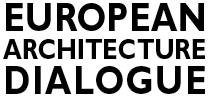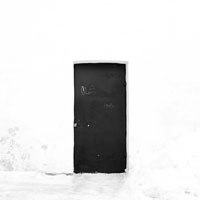Vol:0 Reiseuni Report• Preface |
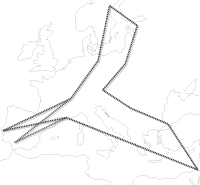
In the tradition of Wilhelm von Humboldt, Reiseuni_lab experiments with new models for teaching and research by design through diverse cooperations with universities and art schools throughout Europe. Across the continent, this experimental architectural laboratory focuses on the sustainable transformation of existing built structures in urban contexts. The diversity of European schools of architecture and building culture has been developed into a post-graduate Master's Programme and the European Architecture Dialogue, accompanied by an interdisciplinary reflection on design strategies, by workshops and conferences. In the following, we present the results of these activities, which began in 2008, as an open-access online publication in four volumes. >>>>
>>>V:0_1 Greetings >>>V:0_2 Preface >>>V:0_3 Thanks >>>V:N Notes >>>N|2 Authors >>>Reiseuni Report Cover >>>Table of contents >>>List of key terms ↑↑↑Reiseuni.blog
Vol:I Reiseuni • Pilot project |
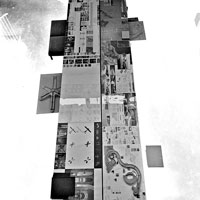
1.1 EAD Berlin, 2012, MT-Presentation, Photo Nabila-Aftab, Asif-Iq- bal-Raiyab. Edit Christian Pieper
V:I_1. Architect's Profession & Education – 6 Points | Dagmar Jäger
Architectural practice has to deal with today's complex problems. The tremendous transformation of the European city requires individuals who are able to perceive things in association, as "team-generalists". Which are relevant research fields of re-thinking the cities within and beyond the limits of growth? How do phenomena such as de-industrialization, touristification or the never-ending urban sprawl affect our profession? And: How do we accumulate architectural knowledge and design experience in academic contexts, generating "open thought spaces" in a socially responsible mind-set, together with students and external experts? Six points unfold the key position of the Reiseuni_lab founder. >>>>
>>>V:I_1.1 Transforming >>>V:I_1.2 Designing Processes >>>V:I_1.3 Team-Generalist >>>V:I_1.4 Design Research >>>V:I_1.5 Humboldt Reloaded >>>V:I_1.6 Multi-Perspectival Think Tank
_Reiseuni-Report_200px.jpg)
1.2 Drawing, Design Research, Jaan Kuusemets, 2010
V:I_2. European Architecture Dialogue + Master's Programme | Dagmar Jäger
The two-year postgraduate Master's Programme and the accompanying European Architecture Dialogue are the dual foundations of the Reiseuni.lab s' activities, initiated 2008 in Berlin on the basis of a Charter to establish the international research network. The study programme combines the tradition of the Grand Tour with project-oriented, intensive workshops, taking place in 8 different cities through interdisciplinary cooperation. After decades of adjustment tendencies, the pilot project re-focuses the potentials of a European architectural research at varied universities by design practice and reflection thereof within the rich cultural heritage. More about key qualities, features and the research profile. >>>>
>>>V:I_2.1 Three Columns >>>V:I_2.2 Master's Degree Programme >>>V:I_2.3 Reiseuni Charter
_Reiseuni-Report_200px.jpg) 1.3 Diagram, Space of Remembrance, DM, José de la Peña, 2010
1.3 Diagram, Space of Remembrance, DM, José de la Peña, 2010
V:I_3. Reflections – Multifaceted Perspectives | Alumni
Which conclusions about European architecture schools, strategies and built culture do alumni develop, after experimenting with multiple professional challenges, diverse interdisciplinary methods, intercultural team work and group life within the workshop series of the Master' s Programme during intensive two years abroad? What have they learned about dealing with the differences of local contexts with diverse design strategies? And what about personal experiences about multifaceted cultural heritage, aesthetic preferences and unknown conventions? The observations of young professionals give an insight into the qualities of the international study programme. >>>>
>>>V:I_3.1 P. Noole & I. Lykouras >>>V:I_3.2 Kaisa Lasner >>>V:I_3.3 Anne Groß >>>V:I_3.4 J. A. Pavón & J. de la Peña >>>V:I_3.5 Sebastian Seyfarth >>>V:I_3.6 Eduardo Magno
Vol:II Theory • Research by Design |
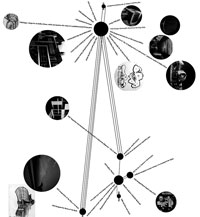 2.0 Diagram, Design Research, Kaisa Lasner, 2010
2.0 Diagram, Design Research, Kaisa Lasner, 2010
V:II_0. Architecture Research by Design. Introduction | Dagmar Jäger
Research by design in architecture means working in collaboration, across disciplines, reflexively and through experimentation. This volume's multi-perspectival design theory reflects the European traditions of the 20th century across three main fields of architectural knowledge production: Experimental real laboratories, border-crossing projects and key strategies of research by design. This article introduces the general framework of the second volume, but also reflects recent discourse on architectural education, to examine the potential of design research as a discipline and as a cross-disciplinary methodology, bridging today's highly specialized academic environment. >>>>
>>>V:II_0.1 Origin >>>V:II_0.2 Motivation >>>V:II_0.3 Status Quo >>>V:II_0.4 Approach >>>V:II_0.5 Key Terms
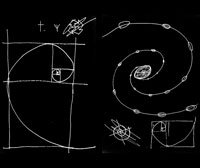
2.1 Diagram, Design Research, Jaan Kuusemets, 2010
V:II_1. Tradition of Architecture Research – Experimental Real Laboratory of the 20th Century | Dagmar Jäger
The search for new solutions in architecture design and production requires conscious political and aesthetic positioning, open-minded discourse and cross-disciplinary approaches. Three fields of knowledge production serve to highlight its relevance for future design thinking: First, the 20th century will be sketched as a historical period illustrative of the paradigmatic shift from social utopia toward gentle urban renewal. Second, interdisciplinary models of real laboratories are illustrated, ranging from the Builder's Hut to Bauhaus to Bauhäusle. Thirdly and finally, project-oriented workshops at universities and private institutions are discussed as architectural think tanks of integrative production, education and research today. >>>>
>>>V:II 1.1 Laboratories of Architecture >>>V:II 1.2 Builder's Hut as Model >>>V:II 1.3 Cross-disciplinary Research Labs >>>V:II 1.4 Epilogue: Spaces of Thought ↑↑↑Schnittmuster-Strategie
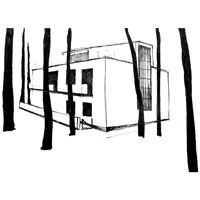 2.2 ArchitecTour Dessau, Drawing, Pille Noole, 2010
2.2 ArchitecTour Dessau, Drawing, Pille Noole, 2010
V:II_2. Beyond Borders – Group Experiments and Alternative Strategies | Dagmar Jäger
Guiding principles of research by design today are anchored in experimental arrangements, self-made projects and strategies of collective appropriation which have been deepened throughout the 20th century. To improve urban built and social environments, community-oriented processes of transformation have been developed in the form of building co-operatives or owner communities. With a specific focus on the laboratory-like situation in Berlin after the fall of the wall, anti-consumerist concepts and housing experiments are presented to uncover the paradigmatic shift from the 'great' ideologies of the 20th century towards locally-oriented ‚germ cells' of architectural thinking today. >>>>
>>>V:II_2.1 Border Crossers >>>V:II_2.2 Research on Space >>>V:II_2.3 Berlin Laboratory >>>V:II_2.4 Epilogue ↑↑↑Schnittmuster-Strategie
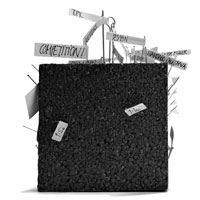 2.3 Analytic Model, Design Research, Anne Groß, Maria Bello, 2010
2.3 Analytic Model, Design Research, Anne Groß, Maria Bello, 2010
V:II_3. Hermeneutic Strategies of Design Research – Critical Inquiry, Visualisation and Reflection | Dagmar Jäger
This section introduces analytical, reflexive and creative design strategies that deal with the investigation, interpretation and transformation of contextual knowledge to display specific spatial relations. Two analytic strategies of research-oriented design processes are presented to visualize, evaluate and discover multi-disciplinary information: the associative reading of traces and the diagrammatic visualization through mapping. The critical reading of sources, experiences, sites and conditions aims to decipher the invisible and to objectivize conflicting positions within design towards the opening of new opportunities. >>>>
>>>V:II_3.1 Hermeneutic Strategies >>>V:II_3.2 Analytic Diagrams >>>V:II_3.3 Reading of Traces >>>V:II_3.4 Epilogue: Transformative Storage ↑↑↑Schnittmuster-Strategie
Vol:III Workshop Clusters • 12 Research FieldsIntro [CBU] [TLL] [LIS] [WRO] [INN] [SVQ] [TLV] [BER] [MRS] [KEL] [DR] Master |
_Reiseuni-Report_200px.jpg) 3.0 Diagram, Space of Remembrance, DM, José de la Peña, 2010
3.0 Diagram, Space of Remembrance, DM, José de la Peña, 2010
V:III_0. Workshop Clusters • Introduction – 12 Research Fields | Dagmar Jäger
The space of the university provides an independent think tank for multi-dimensional investigations of architectural problems. From 2010 to 2013, diverse strategies like sustainable densification, transformation and re-interpretation of the existing have been experimented on in 16 workshops and the Master's thesis in ten different cities in Europe and Israel. The article introduces in the range of research topics, sketches the key concepts from project work, design reflection and terms like "interdisciplinary problem solving" or "cumulative research by design" and presents the frame of Master programme's didactics through the workshop guide. >>>>
>>>V:III_0.1 Research Fields – Introduction >>>V:III_0.2 Workshop Guide >>>V:III_0.3 How to read Vol:III
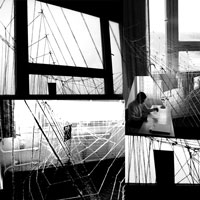 3.1 Installation (Montage), WS Cottbus, Pille Noole, 2010
3.1 Installation (Montage), WS Cottbus, Pille Noole, 2010
V:III_1. Workshop Cluster • Cottbus – Germany | Dagmar Jäger
Until 1989, Cottbus held the status of energy capital of East Germany and was a hidden stronghold of state security (based on the number of agents per inhabitant). Its difficult built heritage of surveillance, large and grown "cities within the cities", is disappearing from the map – either through demolition or privatization, often without any critical approach. The international group of students develops plural proposals for interpreting and transforming different sites of the "young heritage", discussing issues like temporary interventions or hybrid programming of representations of political remembrance, experimenting concepts of artistic tracing or critical re-use, in dialogue with local leaders and the municipality. >>>>
>>>V:III_1.1 CBU-Reflection >>>V:III_1.2 Workshop 1 >>>V:III_1.3 Workshop 2 >>>V:III_1.4 Master's Thesis ↑↑↑WS Blog ↑↑↑CBU-University
V:III_2. Workshop Cluster • Tallinn – Estonia | Irina Raud
Since Estonian independence in 1991 and the opening of frontiers towards Western Europe, the dynamic transformation of the North-eastern city has reinforced building and demolition activities. The search for a new cultural identity balances in relationship to the rich historic built heritage of the "old Hanse town" and with regard to metropolitan areas of Europe. Essential changes are currently taking place in the urban substance of the 19th and 20th century. In particular, the opening process of the coastline – a former military border, the transformation of the existing and the qualifying of the prefabricated building areas pose acute challenges for processes of re-thinking the city. >>>>
>>>V:III_2.1 TLL-Reflection >>>V:III_2.2 Workshop 1 >>>V:III_2.3 Workshop 2 >>>V:III_2.4 Master's Thesis ↑↑↑WS Blog ↑↑↑TLL-University
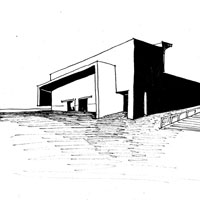 3.3 ArchitecTour Lisbon, Drawing, Nabila Aftab, 2012
3.3 ArchitecTour Lisbon, Drawing, Nabila Aftab, 2012
V:III_3. Workshop Cluster • Lisbon – Portugal | Ricardo Carvalho + Flavio Barbini
Under the influence of mass European city tourism and global investment interests, the historically complex public spaces, the built heritage and the social structure of its metropolitan inhabitants are under pressure in Lisbon. Selected urban situations and built typologies of the given urban morphology, grit and structure, which are already at issue in public debates, are investigated multi-perspectival and with respect to the historic heritage and today's interests of local stakeholders. To enrich future developments, new hybrid building typologies are developed and public spaces carefully re-interpreted within the specific tradition of one of the most beautiful cities of Europe. >>>>
>>>V:III_3.1 LIS-Reflection >>>V:III_3.2 Workshop 1 >>>V:III_3.3 Workshop 2 >>>V:III_3.4 Master's Thesis ↑↑↑WS Blog ↑↑↑LIS-University
_Reiseuni-Report_200px.jpg) 3.4 Diagram, Urbs, WS Wrocław, José de la Peña, 2011
3.4 Diagram, Urbs, WS Wrocław, José de la Peña, 2011
V:III_4. Workshop Cluster • Wrocław – Poland | Izabela Mironowicz
Perspectives on inner urban and neglected industrial areas are investigated, understanding the Linke-Hofmann-Werke AG, now known as the Wrocław Industrial Park, as an example of an infrastructural "urban periphery". The activities of local players have been pioneering the site as well as development concepts by the predominantly neoliberal urban planning authorities which both are the starting point for the elaboration of alternative concepts and scenarios, which consider not only economic feasibility but also infrastructural, social and sustainable needs of future development. The workshop takes place in cooperation with members of the European network EUSS. >>>>
>>>V:III_4.1 Workshop 1 ↑↑↑WRO-University
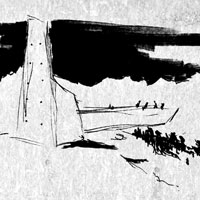 3.5 ArchitecTour Innsbruck, Drawing, Erko Luuharu, 2011
3.5 ArchitecTour Innsbruck, Drawing, Erko Luuharu, 2011
V:III_5. Workshop Cluster • Innsbruck – Austria | Maria Schneider
A constructive alternative to the endless growth of cities is found in the regionalisation concept of the Alps. Against the "gradually rural exodus", in particular the re-activation of selected regions and their specific local potentials are developed within an impressing landscape, in academic cooperation with local stakeholders and with respect to sustainable strategies for built environments, experienced since decades in Austria. Holistic concepts for infrastructure, mobility and buildings in and with nature and in a constructive cooperation with municipalities, as well as the use of regenerative energies are conceptualized, which support "long-term value creation" in the region. >>>>
>>>V:III_5.1 INN-Reflection >>>V:III_5.2 Workshop 1 >>>V:III_5.3 Workshop 2 ↑↑↑WS Blog ↑↑↑INN-University
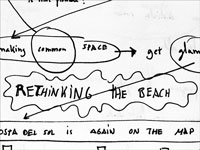 3.6 Drawing, WS Sevilla, Hyungi Jung, Jose Pavon, Raiko-Reinson, 2011
3.6 Drawing, WS Sevilla, Hyungi Jung, Jose Pavon, Raiko-Reinson, 2011
V:III_6. Workshop Cluster • Sevilla – Spain | María del Mar Loren Méndez
The "obsolete beach and sun touristic model" of the Costa del Sol represents the increasing process of accelerated coastal sprawl development driven by aggressive speculation throughout the second half of the 20th century until today. The prevailing trend towards over-simplification and a macro-analysis of the territory in isolation, a reductive, homogenous approach, needs to be counterbalanced by historical, critical and architectonic considerations reflecting a multifaceted system that is both plural and diverse. The potential model for a cultural landscape along the coast serves to develop alternatives of critical reflection and sensible transformation of the given structure and its "Hinterland". >>>>
>>>V:III_6.1 SVQ-Reflection >>>V:III_6.2 Workshop 1 >>>V:III_6.3 Workshop 2 >>>V:III_6.4 Master's Thesis ↑↑↑SVQ-University
_Reiseuni-Report_200px.jpg) 3.7 Project Drawing, MT, Tel Aviv Atlas, Anne Groß, 2012
3.7 Project Drawing, MT, Tel Aviv Atlas, Anne Groß, 2012
V:III_7. Workshop Cluster • Tel Aviv – Israel | Ayala Ronel + Elinoar Barzacchi
A fast growing population and the lack of spatial resources cause strong pressure on historically complex and conflict-ridden urban areas of Tel Aviv. Global investment syndicates and the international flow of tourists encourage an insensitive handling of the historical built memory. Complex layers of social and religious morphology are inscribed in the central and exclusive area along the coast of Tel Aviv. By working on the site Jaffa, representing a virulent example of the conflicting interests, students develop a variety of perspectives on the plural and multicultural civil society and its needs for new metropolitan concepts of urban living, respecting social sustainability and conservation of heritage. >>>>
>>>V:III_7.1 Workshop 1 >>>V:III_7.2 Master's Thesis >>>V:III_7.3 Haifa Greetings ↑↑↑TLV-University ↑↑↑WS Haifa Blog
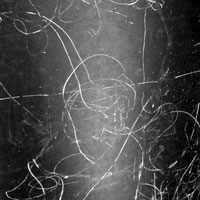 3.8 Drawing, Kollisionen, Choreography WS Berlin, J. Kuusemets, E. Magno, T. Forjaz, J. De la Peña, 2012
3.8 Drawing, Kollisionen, Choreography WS Berlin, J. Kuusemets, E. Magno, T. Forjaz, J. De la Peña, 2012
V:III_8. Workshop Cluster • Berlin – Germany | Rhys Martin + Daniel Ott + Anna Anders
The particular artistic languages and methodological approaches of choreographers, media artists and experimental musicians provide the starting point for plural interpretations of students from different disciplines and an interdisciplinary discourse between the arts. Students from the Berlin University of the Arts and the international group of the Reiseuni investigate the relationship between body, sound, moving image and space from different angles. Through psycho-geographic research, urban interventions, films and performances students interpret the Berlin district Wedding, investigating topics like diversity of cultures, gentrification or everyday life. >>>>
>>>V:III_8.1 BER-Reflection >>>V:III_8.2 Workshop 1 >>>V:III_8.3 Master's Thesis ↑↑↑WS Bauhaus Blog ↑↑↑BER-University
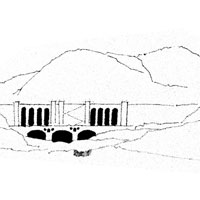 3.9 ArchitecTour Marseille, Drawing, Mehdi Nateghi Pamsaria, 2012
3.9 ArchitecTour Marseille, Drawing, Mehdi Nateghi Pamsaria, 2012
V:III_9. Workshop Cluster • Marseille – France | Stéphane Hanrot
During the last decade, this Mediterranean metropolis has rapidly pursued a policy of interweaving the harbour and tourism economies, as well as the historical district with the "banlieues", to purposefully reconcile the daily life of the inhabitants with the economic aorta of the city. In cooperation with the municipality and experts, a series of university workshops of ENSA Marseille serve to analyse and develop the qualities of the waterfront from an urban perspective and to propose connections between waterfront, urban infrastructure and transportation systems with pedestrian pathways. The project focuses one edge of Marseille, L'Estaque, to develop a neglected industrial and cultural heritage site. >>>>
>>>V:III_9.1 Workshop 1 ↑↑↑MRS-University
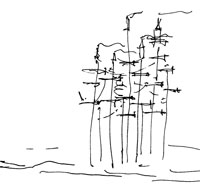 3.10 Drawing, WS Kiel, Lessing Bad, Antje Heymann, 2012
3.10 Drawing, WS Kiel, Lessing Bad, Antje Heymann, 2012
V:III_10. Workshop Cluster • Kiel – Germany | Ludwig Fromm + Michael Breda + Rainer W. Ernst
A former bathhouse, an architectural 20th century heritage of the city first opened in 1935, serves as an experimental space of aesthetic investigation and appropriation in order to transform space and remembrance. Temporary installations are designed in dialogue with the given spatial qualities, to explore the relationship between the history of the place and individual biographical experiences of the students from 8 countries. Varied atmospheres and narratives arise from the former function. The results are presented in exhibitions, installations, films, performances and spatial interventions and are discussed in an interdisciplinary forum between the arts and architecture. >>>>
>>>V:III_10.1 Workshop 1 ↑↑↑EAD Kiel ↑↑↑Not Lost (video) ↑↑↑KEL-University
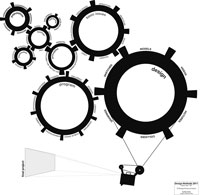 3.11 Diagram, Design Research, Carlos Sixte, 2011
3.11 Diagram, Design Research, Carlos Sixte, 2011
V:III_11. Workshop Cluster • Design Reflection | Dagmar Jäger
Three workshops about architectural research by design, interdisciplinary models and theory create an empirical framework of self-reflection and open debate within the study programme, in order to establish an experience-based architectural design discourse. Students and professors reflect upon the rich treasure of their own design practice as also on differences of positions of the participating architecture schools. Experimental seminars and colloquia serve to catalogue, systematize and analyse multi-faceted design strategies, to objectivize individual positions about architectural practice, education and research into an open-minded knowledge transfer between all participants of the Reiseuni_lab. >>>>
>>>V:III_11.1 Key Terms >>>V:III_11.2 Three Workshops >>>V:III_11.3 Discourse ↑↑↑Design Reflection Blog ↑↑↑EAD Conferences ↑↑↑Architectours ↑↑↑Sketchbooks ↑↑↑Entwurfsforschung jp3.de
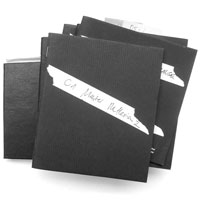 3.12 Sketchbooks Reiseuni, Dagmar Jäger, 2013
3.12 Sketchbooks Reiseuni, Dagmar Jäger, 2013
V:III_12. Cluster • Master's Thesis – Cultural Transfer | Dagmar Jäger
During the six months' elaboration of the Master's Thesis, complex challenges about "Cultural Transfer" have been delved into within six different cumulative research fields across greater Europe. In cooperation with the international professors' team, 19 postgraduate students have been focusing future opportunities of sustainable architecture and urban design in the field of heritage transformation: Three ancient prison plots of the 19th century have been transformed in Tallinn, Lisbon and Cottbus; the touristic territory of Costa del Sol has been investigated as a cultural landscape; neglected urban typologies in Tel Aviv have been analysed and pushed towards new futures. This final research period is conceptualized as 'individual teamwork' in Germany, Estonia, Spain, Israel and Portugal, from both a practical and a theoretical point of view. The final results have been discussed in the European Architecture Dialogue, the final symposium in Berlin. >>>>
>>>V:III_12.1 Opening Lecture >>>V:III_12.2 Objectives >>>V:III_12.3 Conclusions >>>V:III_12.4 Six Topics >>>V:III_12.5 Results ↑↑↑EAD Berlin
Vol:IV Making of • Cycle-03 |
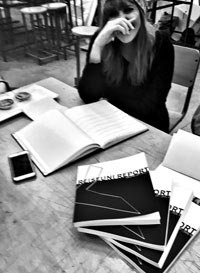 4.00 EAD#11 Lisbon, Photo: Dagmar Jäger, 2016
4.00 EAD#11 Lisbon, Photo: Dagmar Jäger, 2016
V:IV Exemplary Documentation and Analysis of one Workshop-Cycle [Class-03 | 2015-2016]
The Making of [Vol:IV] has been developed during the 10th workshop "Design Reflection 2" in December 2016 at UAL Lisbon with students of class_03 to illustrate one workshop cycle as a multifaceted choreography. The aim has been to analyse, evaluate and document the experienced design strategies, educational programmes and project results of all 9 preceding workshops in an objectifying and self-reflective manner. During 3 weeks, the students developed the review with Dagmar Jäger in the frame of a moderated team work, including analytic diagrams, descriptive texts and interviews. The EAD#11 Lisbon has served not only to release the publication within a team of Reiseuni_lab professors, students and alumni, but furthermore to reflect on the experiences and to take into consideration future perspectives for the Master's Thesis 2017. >>>>
Notes |
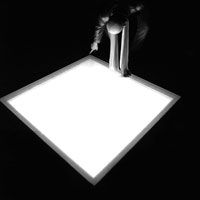 5.00 Architectour-02 Berlin, Tomas Forjaz, Class-01, 2010
5.00 Architectour-02 Berlin, Tomas Forjaz, Class-01, 2010
Six different lists serve to catalogue the international network of the Reiseuni_lab, naming universities, professors, students, participants and authors of the Report, as well as the early supporters and the funding institutions of the pilotproject and scholarships since 2008. >>>>
>>>N|1 Imprint >>>N|2 Authors >>>N|3 Reiseuni.lab Members >>>N|4 Students >>>N|5 Participating Universities >>>N|6 Support >>>N|7 Copyright >>>Privacy
Bibliographic Information:
Jäger, Dagmar (Ed.); Pieper, Christian (Ed.) et al.: Reiseuni Report | The Making of. European Architecture Dialogue. Reiseuni_lab: Berlin, 2016-2019, Vol:I-IV. ISBN:978-3-00-055521-3, DOI:10.978.300/0555213, https://www.reiseuni.eu/report/0_home/home.htm
